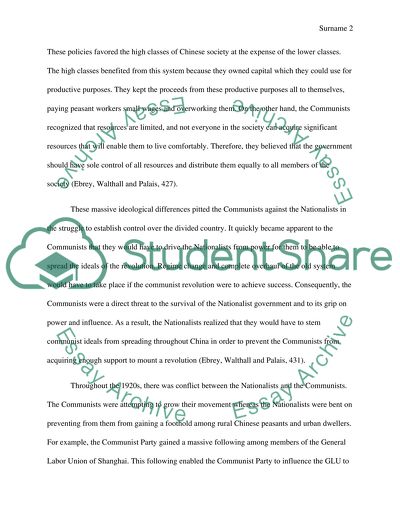Cite this document
(“Chinese Nationalists and Chinese Communists in China in the 1920s Essay”, n.d.)
Chinese Nationalists and Chinese Communists in China in the 1920s Essay. Retrieved from https://studentshare.org/history/1469597-chinese-nationalists-and-chinese-communists-in
Chinese Nationalists and Chinese Communists in China in the 1920s Essay. Retrieved from https://studentshare.org/history/1469597-chinese-nationalists-and-chinese-communists-in
(Chinese Nationalists and Chinese Communists in China in the 1920s Essay)
Chinese Nationalists and Chinese Communists in China in the 1920s Essay. https://studentshare.org/history/1469597-chinese-nationalists-and-chinese-communists-in.
Chinese Nationalists and Chinese Communists in China in the 1920s Essay. https://studentshare.org/history/1469597-chinese-nationalists-and-chinese-communists-in.
“Chinese Nationalists and Chinese Communists in China in the 1920s Essay”, n.d. https://studentshare.org/history/1469597-chinese-nationalists-and-chinese-communists-in.


